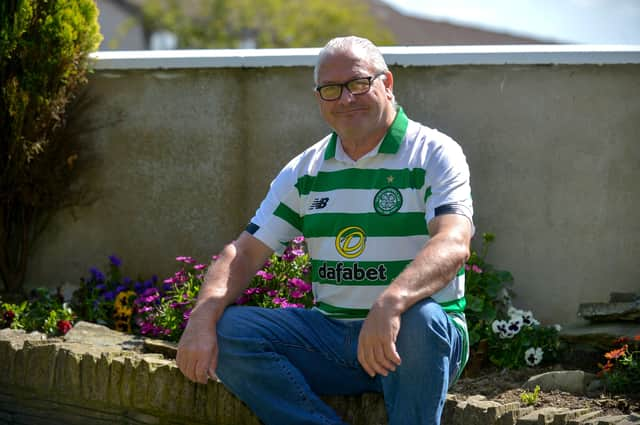Ex-internee Martin McGilloway says Gerry Adams ruling is huge and urges former Long Kesh inmates from Derry to come forward


Mr. McGilloway was interned in the infamous Lisburn detention camp for nine months in the mid-1970s.
He is among hundreds from the city who were interned without trial between 1971 and 1974.
Advertisement
Hide AdAdvertisement
Hide AdEarlier this month the UK Supreme Court ruled that Mr. Adams had been unlawfully detained because an interim custody order (ICO) authorising his detention had not been signed by the then Secretary of State Willie Whitelaw.
Since the ruling, Mr. McGilloway has contacted his solicitor to investigate the circumstances of his own detention between 1974 and 1975.
He is encouraging others to do the same: “If you were in that situation then go for it. At the end of the day there are men in their sixties and seventies now that are still probably feeling the effects from that time. I missed two of my sisters’ weddings when I was in there and I was only in for nine months. I think they should all come forward.”
Mr. McGilloway was still a teenager when he was lifted from a friend’s house in Marlborough Road in September 1974. He was taken to Victoria Barracks, and then transferred to Long Kesh. It was a case of ‘out of the frying pan and into the fire’ as the camp was in full blown revolt by the time he arrived.
Advertisement
Hide AdAdvertisement
Hide Ad“When I went in there was a protest on already concerning food and visits. The prisoners weren’t happy about how they were being treated.
“I was a 19 year old and had never been in jail before and I was going straight into these protests which I knew nothing about,” he said.
A month after he was arrested Mr. McGilloway participated in one of the most famous episodes in the history of the cages: the burning of Long Kesh.
“It was around October 15, word came through the camp that it was happening. As a 19 year old you’re up for anything. We all broke out of the huts and the cages and did whatever damage we could. That’s what we were told to do. Then I remember hearing Long Kesh was burning from one end to the other.”
Advertisement
Hide AdAdvertisement
Hide AdAn intriguing feature of the uprising was a truce with the loyalist prisoners who adopted a neutral position.
Mr. McGilloway recalls: “They didn’t take part in the protest mostly but what they were saying was, if you need these huts [for first aid], we’re here for you.”
As the evening wore on a major riot situation erupted and the camp was swamped with British troops.
“We were told to go to the football pitch within the compound and the Brits were already lined up beside the wires with riot gear, shields and helmets. It went on right through the night and we were actually standing in hand-to-hand battles with the soldiers.”
Advertisement
Hide AdAdvertisement
Hide AdThe following morning a Gazelle helicopter appeared and the internees, including Martin, were saturated with CR gas (dibenzoxazepin) - a tear gas far more potent than the more familiar CS variant (o-chlorobenzylidene malononitrile).
“You could see the soldier sitting with his legs hanging out of the helicopter and he was opening the gas and throwing it down on top of us. It wasn’t even CS gas then, it was CR gas. We were exhausted then. Our OC in the cage then negotiated with the governor and the Brits and decided that was it.
“After we burned the camp we were all sitting around the perimeter and the British came in with real force. They frogmarched every person on our hunkers with our hands on our heads back to the burnt out cages and huts.”
Martin said the conditions at Long Kesh were dreadful that winter.
Advertisement
Hide AdAdvertisement
Hide Ad“You had maybe eight men sleeping in a hut between us. You’ve got to remember it was October going into November. There was no hot water. There were no showers. There was no heating. The conditions were horrendous at the time. You had no visits and no parcels. I got out in April 1975.”
Martin encouraged anyone in his situation to consider challenging the legal basis for their internment.
“Nobody knows who was under an ICO. I don’t know if I was. I’m waiting on my solicitor to get back to me but I’m sure there are plenty of people out there in their sixties and seventies that are probably in the same situation as Gerry Adams,” he said.